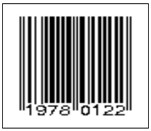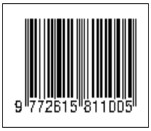ANALISIS DETERMINASI INNOVATIVE WORK BEHAVIOR DI YAYASAN TP 45
Abstract
Keywords
Full Text:
PDFReferences
Afsar, B, and W.A. Umrani. (2020). “Transformational leadership and innovative work behavior: The role of motivation to learn, task complexity and innovation climate.” European Journal Of Innovation Management 23 (3): 402-428.
Alkhodary, D. (2016). “The relationship between employee’s empowerment and innovative work behavior.” International Journal of Managerial Studies and Research (IJMSR) 4 (2): 1-15.
Damayanti, Y. (2021). “Pengaruh Empowering Leadership Terhadap Kinerja Guru Dengan Psychological Empowerment Sebagai Variabel Mediasi.” Jurnal Ilmu Manajemen 9 (3): 907-919.
Dan, X., S. Xu, J. Liu, R. Hou, Y. Liu, and H. Ma. (2018). “Relationships among structural empowerment, innovative behaviour, self‐ efficacy, and career success in nursing field in mainland China.” International journal of nursing practice 24 (5): 126-140.
Hamid, R.A., M.R. Rahid, and S.N.A Hamid. (2020). “The effects of employee participation in creative-relevant process and creative self-efficacy on employee creativity.” Malaysian Journal of Society and Space 16 (2): 179- 191.
Mutonyi, B.R. (2021). “Employees’ Psychological Capital and innovative behavior in higher education.” International Journal of Quality and Service Sciences 13 (2): 198-215.
Ningrum, W.R., and S.M. Abdullah. 2(021). “Tinjauan Literatur: Perilaku Inovatif Pada Guru.” Prosiding Seminar Nasional 2021 Fakultas Psikologi UMBY 1 (1): 201-214.
Nugroho, Z.D.P.K, and S. Handoyo. (2022). “Pengaruh Psychological Capital dan Self-Leadership Terhadap Perilaku Inovatif Karyawan Pada Industri Pariwisata.” BRPKM: Buletin Riset Psikologi dan Kesehatan Mental 10 (1): 1-10.
Ramdayana, I.P., and H. Prasetyono. (2022). “Innovative Work Behavior Guru Sekolah Menengah Kejuruan.” JUPEIS: Jurnal Pendidikan dan Ilmu Sosial 1 (1): 60-69.
Sasmita, N.A., and M.D. Mustika. (2019). “Peningkatan Psychological Capital Melalui Program "I’m Superhero In The Workplace" dalam Rangka Optimalisasi Perilaku Kerja Inovatif.” Jurnal Diversita 5 (2): 105-114.
Slatten, Terje, G. Lien, C.M.F. Horn, and E. Pedersen. (2019). “The links between Psychological Capital, social capital, and work-related performance: A study of service sales representatives.” Total Quality Management & Business Excellence 30 (1): 195-209.
Taradita, I.G.A.S., and I.M.A Wibawa. (2019). “Pengaruh Pemberdayaan Psikologis Dan Budaya Organisasi Terhadap Perilaku Inovatif.” E-Jurnal Manajemen Unud 8 (6): 3417-3445.
DOI: https://doi.org/10.35327/gara.v18i1.789
Refbacks
- There are currently no refbacks.
Copyright (c) 2024 GANEC SWARA

This work is licensed under a Creative Commons Attribution-ShareAlike 4.0 International License.
TERINDEKS
|
_______________________________
Ganec Swara
Published by UNMAS Denpasar K. Mataram |
Email: ganecswara@gmail com; aminullahmtk@gmail.com

This work is licensed under a Creative Commons Attribution-ShareAlike 4.0 International License.











